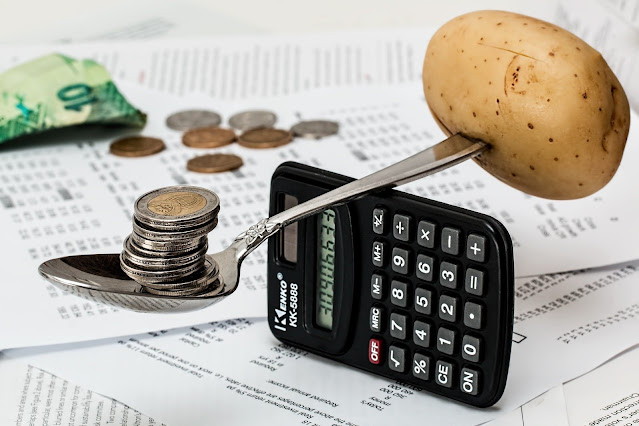Importance of a budget: Third in a series of financial tools to master
 |
| Budgeting! |
Welcome back! I’m a recent early retiree who is a follower of FIRE (financial independence retire early) movement. I started this blog (Wandering Money Pig) to share my personal journey of preparing for early retirement and living early retirement.
I felt basic lessons about money / finance were sorely lacking in our educational system. I wanted to give someone basic knowledge of finance in the simplest way I know how. I’m no professional, but through avidly reading about finances and applying what worked for me, I’ve managed to figure out how to retire early.
I, myself, did not really know much about finance until the middle of my thirties. I encourage anyone to learn as much as he/she can and to get interested in finance, as this is the way I was able to retire early. I hope to share what has helped me in my journey to become financially independent.
This third topic of budgeting is really important to master. How much you spend is half of the equation to early retirement. Without knowing how much you spend each year, you won’t know how much you’ll need to save for retirement!
In my previous post, I had given a simple equation to know for early retirement. Save up 25 times (or more) what you spend per year to retire early. *If you spend $30000 per year, then you’ll need $750000.
This is where budgeting comes in. Budgeting is in its simplest form, balancing your expenses with your income. To do it right, to master it, takes practice. By doing this religiously, you’ll see exactly how you’re spending your money vs how much money you’re bringing in.
Starting and managing a budget:
- Starting a budget doesn’t have to be fancy. You can either use a notepad/paper like I do, or use any number of free online budgeting tools (Mint, PocketGuard, etc.) Whether you use physical paper or online tool, write down EVERYTHING you buy using cash, credit card, debit card, or check. You also want to note how much money is coming in.
- Keep receipts of all purchases. If this is not possible, keep track of it somehow. Write down physically on a piece of paper or jot it down on your smartphone. When you get home, write down on your budget. It’s important to get in the habit of writing purchases down.
- After you do this for a full month, you’ll see exactly how much you’re spending. There may be things you notice that added up to quite a bit. What can you reduce if it amounted to a huge expenditure for the month? Can you make coffee from home instead of buying one from a coffee shop? Can you bring your own lunch instead of buying lunch each day? Can you not go out each night to have drinks or dinner out? You’ll start to see things that can be trimmed out.
- If your budget went over your income for the month, consider looking at areas where you can trim your spending. This is NOT going to be easy at first. Especially when you’re in your twenties and early thirties, the lure of going out, to let loose, will be tough to ignore. I was there myself. Since you can’t completely cut off everything, you’ll want to reduce the frequency of these things. Instead of going out with your friends every night, go out maybe 2 times a week. We all need some ‘let loose’ money in our budget. I have a $200 budget set aside for entertainment each month. You should have one but STICK TO IT!
- What are your recurring monthly bills? Write down your housing/rent, utilities, transportation (leased or financed vehicle, or public transportation), student loans, car insurance, credit cards, etc. Majority of recurring monthly expenses will go to three things: housing, transportation and groceries. It may not be easy to change immediately, but if you’re struggling to balance your budget each month, consider changing any of the top 3 monthly expenses. Can you find a cheaper housing? Can you reduce your transportation budget? What about groceries?
- Learn to cook from home and do meal planning! Don’t underestimate how much you can save by doing this. According to US Department of Agriculture survey from 2018, we spent about 10% of our income on food. 5% was at the supermarket while 5% was at restaurants. By learning to cook from home and meal plan, you can save plenty of money.
- Keep doing this month after month until it becomes a habit. Don’t be discouraged if you miss writing something down, as mistakes will happen from time to time. We’re not perfect! What’s important is that budgeting becomes second nature...
- Each month, spend some time to go over your budget. If you have a significant other, it always help to have both of you work on this together. Figure out what you did right and wrong. See what improvements can be made. Pat yourselves on the back if you successfully kept to your budget!
- Retirement is a decision that both parties have to agree on. Early retirement even more so...Both of you must be on the same page about this...
- Budgeting is an ongoing process. It’s like anything else in life. The more you do it, you’ll get better at it.
- Ultimately by doing your budget then figuring out how much you’re spending on an average month, you can then figure out how much you’ll need to have for early retirement.
Please check out our YouTube channel ‘Wandering Money Pig’ showcasing our travels and our Pomeranian dog! https://www.youtube.com/channel/UC3kl9f4W9sfNG5h1l-x6nHw


